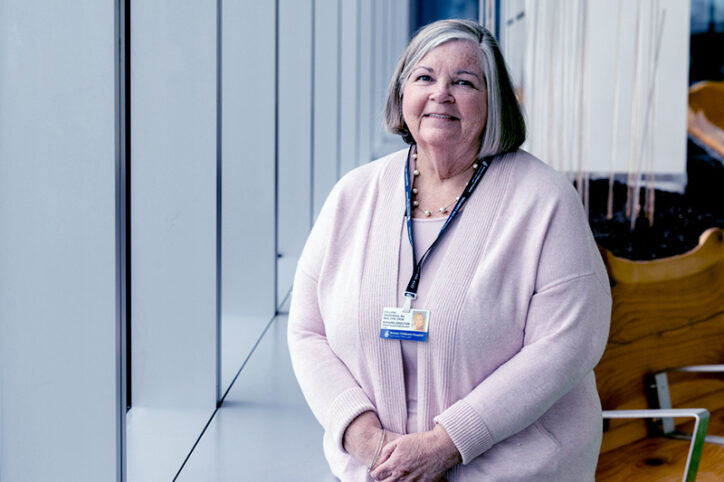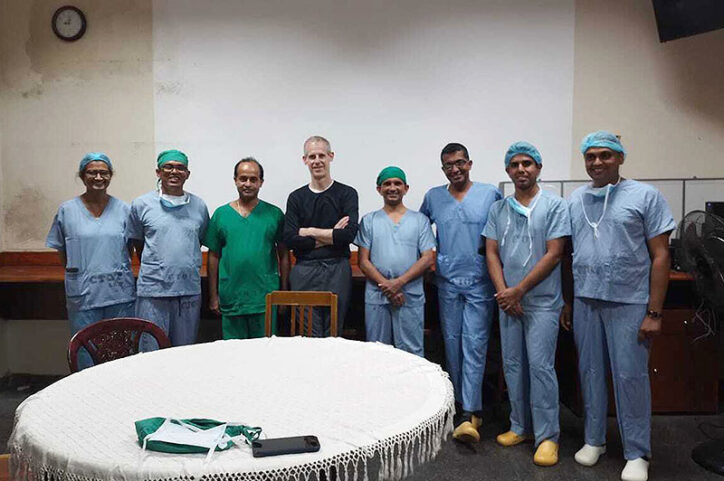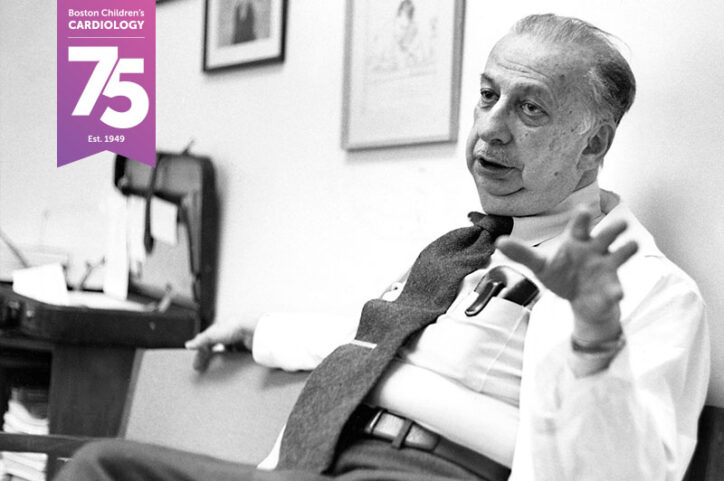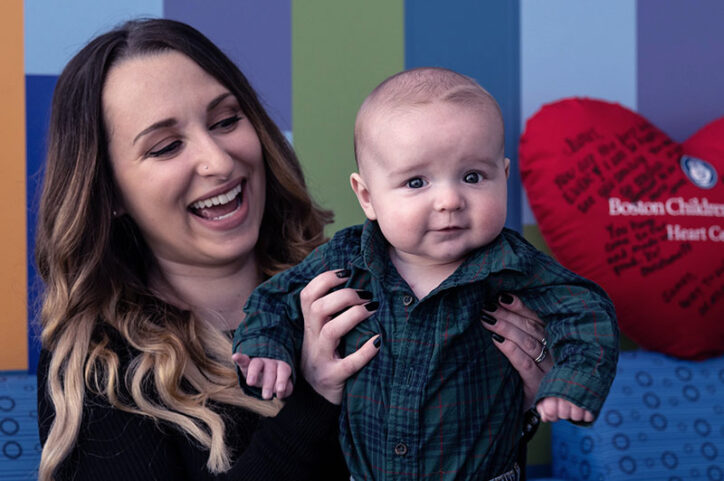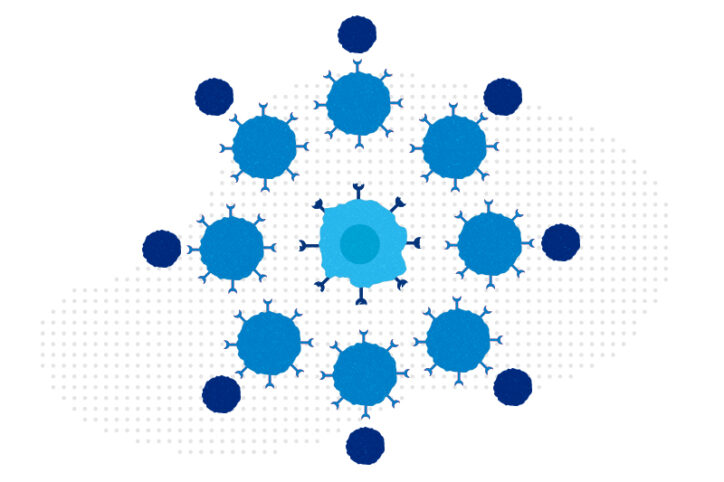Reversing the trend: Easing the mental health boarding crisis in emergency rooms
Anxiety, depression, and suicide attempts have been rising over the past decade, especially among teens, often landing them in emergency departments (EDs). Due to a nationwide shortage of beds in psychiatric treatment programs, virtually all pediatric hospitals are having to keep patients in the ED and on inpatient medical and surgical floors — sometimes for ... Read More about Reversing the trend: Easing the mental health boarding crisis in emergency rooms
Nurse-led innovations: A virtual-nursing pilot helps nurses thrive
It was night shift on the 9E Inpatient Medical Unit and Marisol Hernandez, BSN, RN, CPN, was helping another nurse review her patient assignments. With about 85 percent of their patients admitted from the emergency department (ED), nurses on the unit at Boston Children’s Hospital often don’t know how many patients will be admitted during ... Read More about Nurse-led innovations: A virtual-nursing pilot helps nurses thrive
In a thriving gene therapy program, nursing leadership is the driving force
Gene therapy was made possible by decades of technological advances. But to execute gene therapy at scale? That would not be possible without the foresight, organization, and innovation of nursing leadership at Boston Children’s Hospital. The gene therapy implementation framework they have built has become a gold standard for the field. Founded in 2010, the ... Read More about In a thriving gene therapy program, nursing leadership is the driving force
Three ways to ensure your child has the proper asthma medication
Children who have asthma should always have access to medication. But a manufacturer’s decision to stop producing a popular asthma drug has many families scrambling to find alternative medications that are covered by health insurance. Prescriptions sometimes change for families because a medication is discontinued or there are coverage changes by health insurers and pharmacies, ... Read More about Three ways to ensure your child has the proper asthma medication
How Boston Children’s physicians have teamed up to tackle obesity and food insecurity
When nutritious, high-quality food is not easily accessible, families are often left to purchase what is available — usually, highly processed, nutrient-poor food. Children in these households — who also have food insecurity and various socio-economic stressors — face additional barriers and are at risk for developing chronic diseases, such as obesity. To address such ... Read More about How Boston Children’s physicians have teamed up to tackle obesity and food insecurity
Medical care for youth with neurodevelopmental disabilities: A call for change
According to national data, one in six children has a neurodevelopmental disability (NDD) such as autism, intellectual disability, or ADHD. Their medical care is often inadequate, sometimes leaving conditions untreated and neglecting preventive care — with poorer outcomes as the result. Clinicians may not take time to communicate with children, teens, and young adults with ... Read More about Medical care for youth with neurodevelopmental disabilities: A call for change
A surgeon’s last-minute trip to Sri Lanka reduces children’s wait for needed heart repair
Last year, Dr. Christopher Baird got an offer he couldn’t refuse — something that happens often as he travels the world to demonstrate the heart surgery techniques he has learned and developed at Boston Children’s Hospital. At a heart surgery symposium in India, Dr. Baird had just performed a complex type of aortic valve reconstruction ... Read More about A surgeon’s last-minute trip to Sri Lanka reduces children’s wait for needed heart repair
The people and advancements behind 75 years of Boston Children’s Cardiology
Boston Children’s Department of Cardiology has more than 100 pediatric and adult cardiologists, over 40 clinical fellows learning the routines of heart care in a major hospital, 12 echocardiogram rooms dedicated to testing the function of a child’s heart, and five labs equipped to perform advanced catheterization procedures. Many other numbers could highlight the dedication that the ... Read More about The people and advancements behind 75 years of Boston Children’s Cardiology
After surgery for heart condition tetralogy of Fallot, James is all joy
Warriors come in all shapes and sizes. Some even smile. In the Irvine family, the lead warrior is a happy one: 6-month-old James, whose cheeriness hides the difficult medical journey he had in the first few months of life. “I have been told by many people that James is an inspiration,” says his mom, Heidi. ... Read More about After surgery for heart condition tetralogy of Fallot, James is all joy
Combining CAR-T cells and inhibitor drugs for high-risk neuroblastoma
Chimeric antigen receptor (CAR)-T cell therapy is a potent emerging weapon against cancer, altering patients’ T cells so they can better find and destroy tumor cells. But CAR-T cell therapy doesn’t work well in every cancer — including many cases of neuroblastoma, a cancer that begins in young children’s nerve tissue and can metastasize to ... Read More about Combining CAR-T cells and inhibitor drugs for high-risk neuroblastoma




